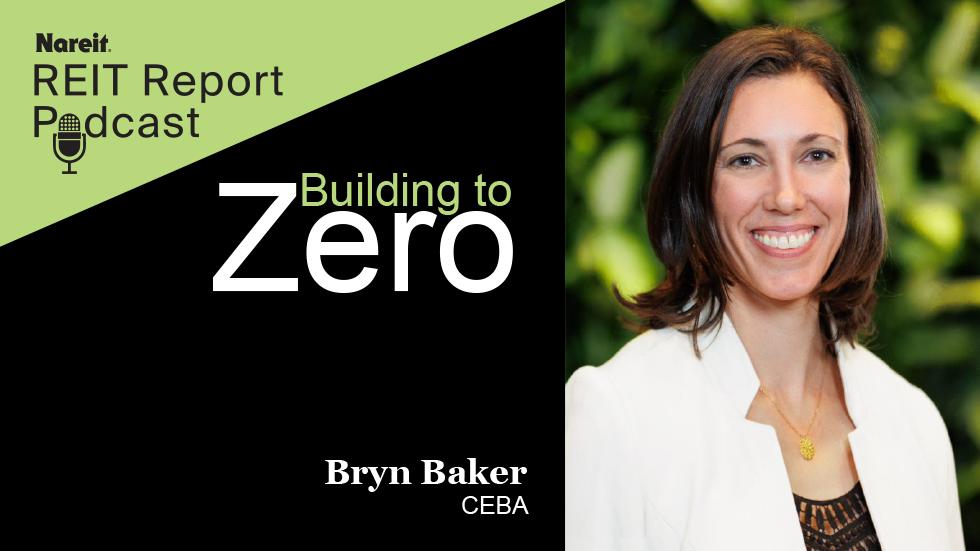
Listen and subscribe on your podcast platform of choice.
In this episode of the REIT Report special series “Building to Zero,” Bryn Baker from the Clean Energy Buyers Association (CEBA) discusses how energy customers are a powerful voice for modernizing the power system that underpins economic growth and development.
The Clean Energy Buyers Association (CEBA) represents members with about $15 trillion in market cap. That's about 400 members who collectively are a community of commercial, industrial, and institutional energy buyers. In this episode, Baker discusses how energy customers drive demand and how CEBA is focused on addressing barriers to energy supply challenges that hold back the demand for clean energy.
Baker shares that, “the grid is the single biggest constraint to decarbonization. But it's also now the single biggest constraint to economic growth because that growth depends on access to clean, adequate, low cost, reliable power. And so fundamentally, sort of what's at stake here is building the infrastructure of tomorrow — everything from the industries of the future to the grid that's going to underpin that because the grid is the backbone of the economy.”
She provides an overview of the recently finalized Federal Energy Regulatory Commission (FERC) rule and how it addresses the approach to improving and expanding grid infrastructure planning. This includes the challenges tied to the fragmented approach to generation planning, which happens at the state level, and the planning for regional and inter-regional transmission, which FER manages.
“We have 2.6 terawatts of new generation in interconnection cues around the country, which is more than twice the capacity of our entire grid. Now, not all of that's viable, but we have sources of power. What's preventing them from connecting to the grid is in large part a lack of transmission lines and the need to upgrade transmission infrastructure.” She goes on to share how “modeling has shown that decarbonizing will be much more expensive for all of us who pay for the grid if we aren't expanding transmission to connect low-cost sources of power, which are often wind and solar, to where it's needed.”
Baker discusses how the Loper-Brite decision on Chevron deference may increase uncertainty in an environment where we're not moving fast enough and a whole host of challenges have been slowing transmission down. She explains how utilities and policymakers need to hear from building owners and tenants that clean, carbon-free power is what they want while also acknowledging the concern about how to meet increasing demand—which often leads people to the obvious conclusion to build more gas. Baker shares how “instead of hitting the gas button reflexively, there's a need to look at how to build a more dynamic, flexible, responsive grid.”
Listen and subscribe on your podcast platform of choice.
Other podcasts in the Building to Zero series
- USGBC’s Journey to Support Decarbonization of the Built Environment
- DOE Better Buildings Initiative’s Support for Building Sector Decarbonization
- BXP’s Ben Myers on Electrifying the Built Environment
- Real Estate Roundtable says CRE Playing Key Role in Success of Federal Climate Programs
- Empire State Realty Trust Makes the Business Case for Decarbonization Strategy
- Norges Bank Says Real Estate Facing “Tremendous Pressure” to Decarbonize